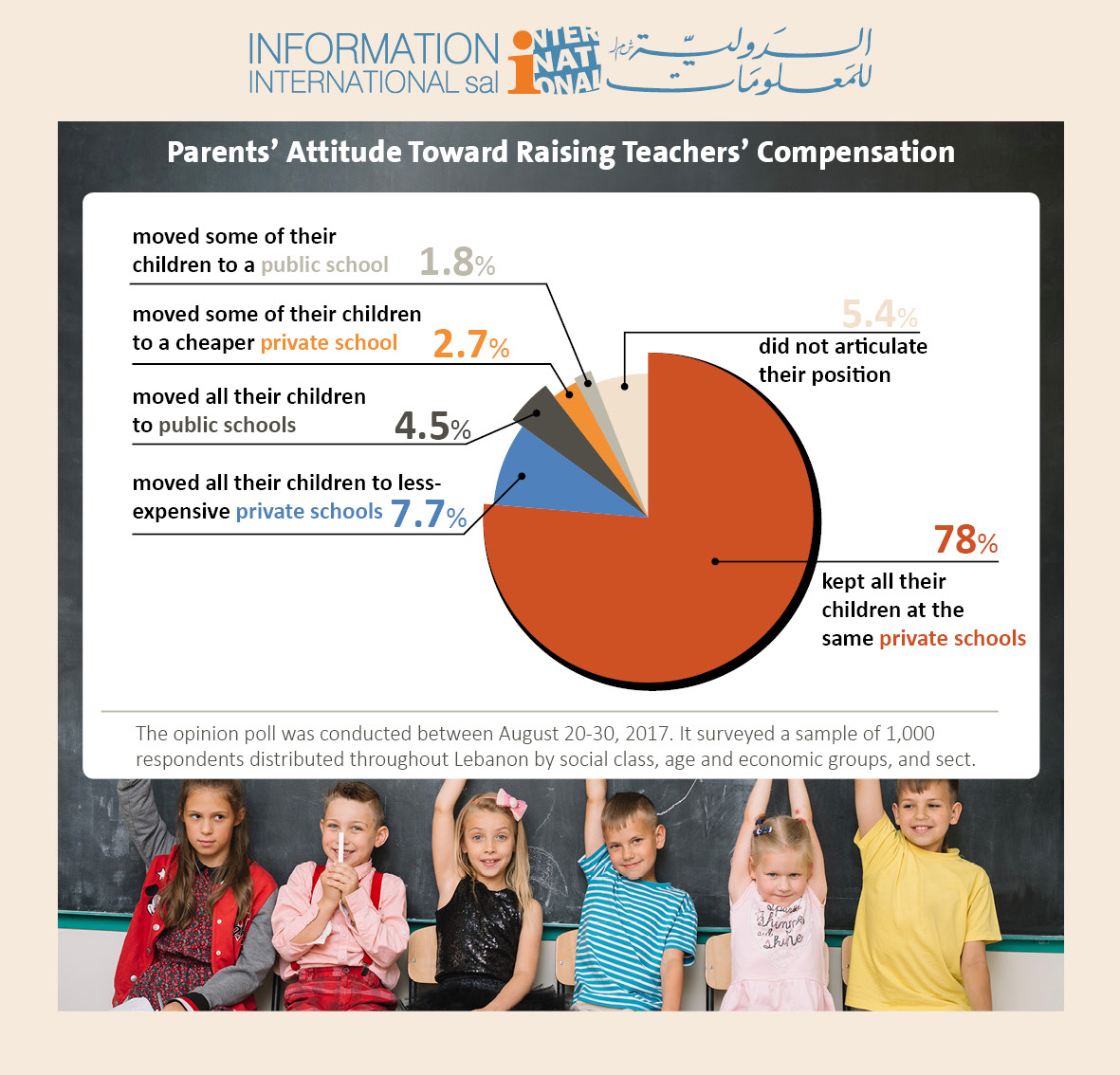Information International Polls the Lebanese on the Private Schools’ Fee hike
Information International polls the Lebanese on the private schools’ fee hike:
78% have chosen to keep their children at the same school
Following the adoption of Law No. 46 of August 21, 2017, which stipulates a raise in the minimum wage and the cost-of-living allowance of employees, including public and private school teachers (Article 13 of the law), the majority of private schools have decided to increase fees to cover the higher salaries of teachers and employees. Parents, however, have expressed their dissatisfaction by taking different stances.
Attitude toward raising teachers’ compensation
Although parents rejected the raise at first, the majority (78%) have decided to keep their children at the same school and to bear the burden of increased fees, while 7.7% have chosen to move them to less-expensive private schools.
In order to reduce the schooling costs, 4.5% of parents have decided to move their children to public schools, whereas 2.7% have moved some of their children to a cheaper private school while keeping the others at the same private school. Only 1.8% of parents have decided to move some but not all of their children to a public school.
5.4% of parents have not articulated their position yet. This indicates the extent to which the Lebanese are committed to keeping their children in high-quality schools and bearing the burden of increased fees instead of moving them to public schools with nominal fees but lower educational standards.
How to secure the school fees?
In order to secure the increased fees and keep their children at the same school, parents resorted to several options:
- Reducing entertainment expenses: 43%
- Borrowing: 27%
- Reducing food and clothing expenses: 12%
- Selling properties: 2%
- Increasing working hours: 2%
- Other options: 3%
- “I do not know”: 11%
The opinion poll was conducted between August 20-30, 2017. It surveyed a sample of 1,000 respondents distributed throughout Lebanon by social class, age and economic groups, and sect.










Leave A Comment